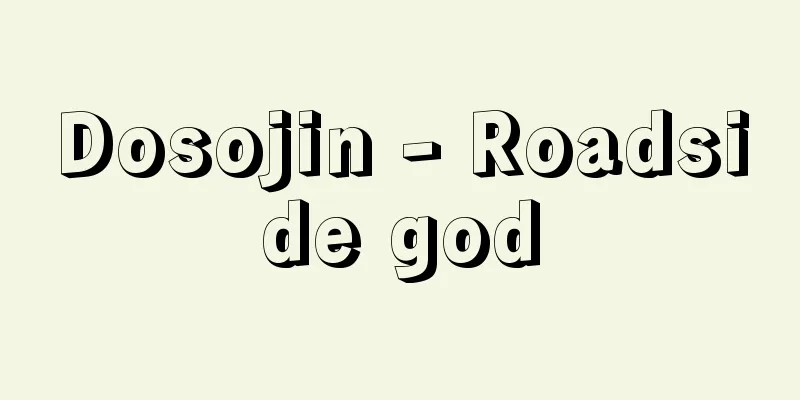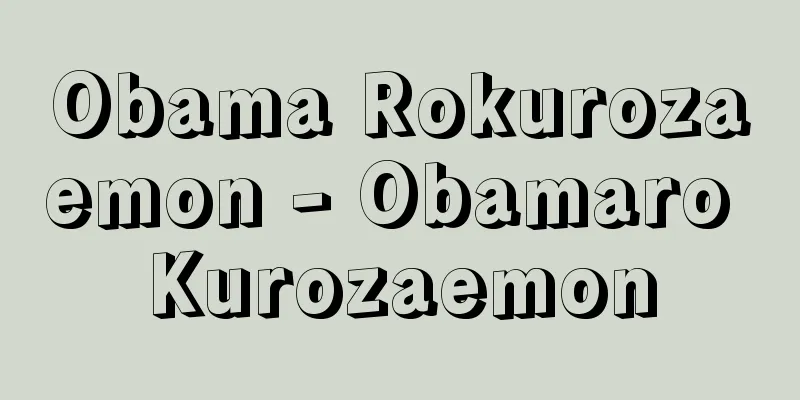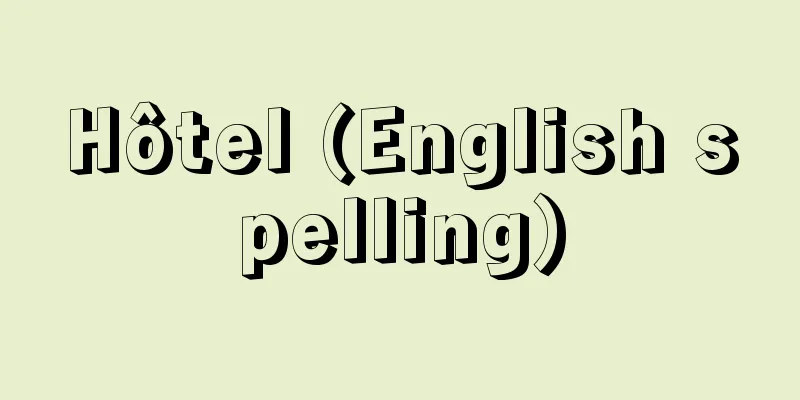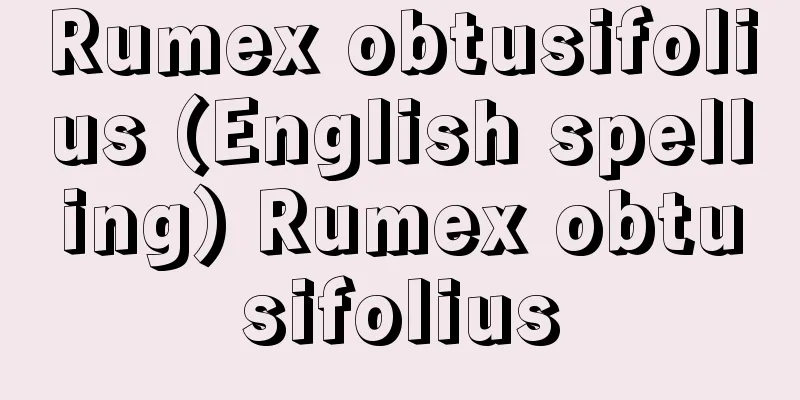German idealism - doi tsukanenron (English spelling) German idealism English
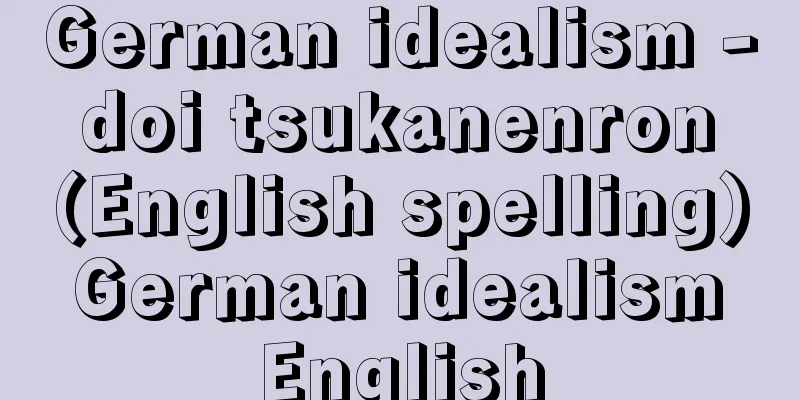
|
It is a translation of the German phrase der deutsche Idealismus, and is sometimes translated as "German Idealism." It is represented by Fichte, Schelling, and Hegel. Although all three were German, they did not share a common idealism or idealism, so some say that the term "German Idealism" is inappropriate. These three philosophers unified Kant's dualism of the world of sensibility and the world of intellect, nature and freedom, and reality and ideas into pantheism and panegoistic monism, and attempted to establish a kind of metaphysical system. [Kato Naotake] Times and trendsIt covers the period from when Kant's ideological influence began to spread with Reinhold's Letters on Philosophy (1786-87), when it reached its peak at the University of Jena from 1800 to 1808, when it then shifted its center to the University of Berlin, until the mid-19th century, when the Hegelian school split and materialism and irrationalism emerged. They recognized the existence of a reason and an absolute being within the human ego that transcended the empirical, and on the other hand, influenced by the Enlightenment and the French Revolution, they had a tendency toward political liberalism and republicanism, but they also tended to be interested in the inner world, the world of ideas, rather than in the real world. [Kato Naotake] Overcoming KantReinhold argued that Kant's philosophy lacked the "single principle" from which all theories could be derived, and that such a principle must be discovered in order for philosophy to become a true science, the "first philosophy." Here, the fundamental goals of "German Idealism" were established: (1) to place the emphasis of Kant's philosophy on moral and religious thought, (2) to unify the dualistic oppositions between the world of sensibility and the world of intellect, nature and freedom, realism and idealism, that is, the dualistic oppositions between objective and subjective, and (3) to unify them through the development of a "philosophical system" based on a single fundamental principle. [Kato Naotake] Idealism and RealismFichte, Schelling, and Hegel all claimed the unity of ideality and reality, and called their own positions "idealism." "Everything depends on the ego for its ideality, and the ego itself depends on it for its reality. But nothing is real for the ego without being ideal. The ground of ideas and the ground of reality are identical within the ego" (Fichte). This means that the ego itself recognizes the consciousness that the sensibility that touches reality and the understanding that transcends reality are "fundamentally one without any mediation" (Schelling), that is, "intellectual intuition" (intuitive understanding). In other words, (1) he denied "that which is real without being ideal," that is, the thing-in-itself, (2) established within the human ego the "absolute" in which the subjective and the objective are fundamentally identical, and (3) regarded the "absolute being," or God's intellect, and human reason as fundamentally identical, and believed that humans could achieve union with God by elevating themselves to the level of reason. [Kato Naotake] God and ManGerman idealism was formed under the influence of the Enlightenment ideas in France and Germany, and it is said that "in Germany, the Enlightenment was on the side of theology, while in France it was the first to rebel against the Church" (Hegel). Kant, who represents the German Enlightenment, "removed knowledge in order to give place to faith," and set limits on the knowledge of nature while not recognizing the ability of humans to know God. Human reason is autonomous and free precisely because it cannot know God in detail, and it is on the basis of this freedom that God is "demanded." German idealism believed that unless "God for humans" and "God itself" were the same, the existence of God would threaten human freedom. "To regard the Absolute (God) as objective and remain there is generally a position of superstition and slavish fear, as Fichte in particular rightly emphasized in modern times" (Hegel). From this, the pursuit was for "humans to reach a consciousness of unity with God and for God to cease to be merely objective." God, who is not an objective being outside of human reason but is inherent in human things, is not a personal God. Religion (faith), which is in the position of representation and intuition, perceives God as a person, while philosophy (knowledge) is the awareness of the unity with God in true form. The highest goal of philosophy is to become aware of the "absolute" (the Absolute) inherent in knowledge. This absolute can be called "truth," and the absolute is inherent in the world grasped by true knowledge. In other words, by assuming that (1) philosophy and religion share the same content and goal, and (2) that the absolute is inherent in the rational "world," German idealism (3) elevated "anthropology" within the framework of "theology" to the highest level. [Kato Naotake] God is natureThe world in which the Absolute resides is, first of all, "nature." Spinoza's philosophy, a system that unified Cartesian dualism in a pantheistic way, had been ignored like a "dead dog," but in this era it was revived as something that overcame Kantian dualism. German idealism replaced Spinoza's mechanistic nature with a teleological organic world, while at the same time replacing the subjective character of "as if..." recognized by Kant with Spinozaian substantiality, thereby believing that the "absolute," the unity of the subjective and objective, is realized in the teleological organic world. Naturally, there is an element of intelligence within nature itself. "Nature is an ideal existence in which representation and production, concept and action, are one" (Schelling). (1) The inner subjectivity of nature at the same time gives nature itself a sense of activity, (2) creating a dynamic view of nature that develops through conflict. It was also at this point that (3) it was thought possible to overcome Spinoza's fatalism and reconcile freedom and nature, leading to the mystification of nature. [Kato Naotake] God is historyHowever, freedom, like reason, is originally a self-conscious thing that "knows itself." "The reason why Spinoza's interpretation of God as a substance outraged the times lay in the instinctive feeling that self-consciousness (self-awareness) would be lost and not maintained under such a definition" (Hegel). For the divine substance to know itself, at the same time, humans as self-consciousness must reach the absolute within themselves, that is, "absolute knowledge." The substance must be not nature but spirit (subject). This substantial spirit has a place of realization in the historical world. The awareness of the universal will, the unity of the communal spirit and the individual spirit, is the recognition of the absolute in history that develops the idea of freedom. This is where Marx's early thought was born. [Kato Naotake] The Depths of FreedomOn the other hand, Schelling further explored the idea of God being nature, and sought the unity between freedom, which is the possibility of evil, and God, believing that human freedom arises from "nature in God," which is distinguished from God within God, as the "foundation of existence" of God. Freedom, which has always been considered a rational will since Kant, came to be regarded as having a dark foundation that goes beyond the light of reason. There is also a theory that this idea was common to the irrationalism of Schopenhauer, a contemporary of his, and was the womb that gave birth to Nietzsche and Kierkegaard. [Kato Naotake] "Studies on German Idealism" by Yoshio Kayano (1975, Sobunsha)" ▽ "Studies on Fichte's Theory of Knowledge" by Tadataka Kumamoto (1979, Kyodo Publishing)" ▽ "From Fichte to Schelling" by R. Raut, translated by Tadataka Kumamoto (1982, Ibunsha)" ▽ "Kant and Hegel" by Shoji Takahashi (1984, Koyoshobo)" [References] | | |Source: Shogakukan Encyclopedia Nipponica About Encyclopedia Nipponica Information | Legend |
|
ドイツ語のder deutsche Idealismusの訳で、「ドイツ理想主義」と訳す場合もある。フィヒテ、シェリング、ヘーゲルによって代表される。この3人はいずれもドイツ人であるが、共通の理想主義も、共通の観念論も抱いてはいなかったので、「ドイツ観念論」という呼び方は不適切だという説もある。これら3人の哲学者は、カントによる感性界と英知界、自然と自由、実在と観念の二元論を汎神(はんしん)論、汎自我論的一元論に統一して、一種の形而上(けいじじょう)学的体系を樹立しようとした。 [加藤尚武] 時代と傾向ラインホルトの『哲学についての書簡』(1786~87)によってカントの思想的影響が広がり始めてから、1800~1808年のイエナ大学で頂点を迎え、その後ベルリン大学に中心を移して、19世紀中ごろ、ヘーゲル学派が分裂し、唯物論と非合理主義が登場するまでの期間に及ぶ。 人間の自我の内に、経験的なものを超える理性、絶対者の存在を認め、他方で啓蒙(けいもう)思想とフランス革命の影響を受けて政治的自由主義、共和主義の傾向をもちながら、現実世界に関心を向けるよりも、内面世界、観念世界に関心を向けるという傾向をもっていた。 [加藤尚武] カントの克服ラインホルトは、カント哲学にはすべての学説を導き出すもとになる「ただ一つの原理」が欠けている、哲学が真の学問、「第一哲学」となるためには、こうした原理が発見されなければならない、と説いた。ここに(1)カント哲学の重点を道徳、宗教思想に置いて、(2)感性界と英知界、自然と自由、実在論と観念論、つまり客観と主観の二元的対立の統一を、(3)唯一の根本原理を基にする「哲学体系」の展開によって行う、という「ドイツ観念論」の根本目標が設定された。 [加藤尚武] 観念論と実在論フィヒテ、シェリング、ヘーゲルはいずれも観念性と実在性の統一を主張しながら、自分の立場を「観念論」と称した。「すべてのものは、その観念性については自我に依存し、実在性に関しては自我そのものが依存的である。しかし、観念的であることなしに自我にとって実在的なものは何もない。観念根拠と実在根拠は自我の内では同一である」(フィヒテ)。このことは、自我そのものに実在性に触れる感性と、実在性を超える悟性とが「あらゆる媒介なしに根源的に一つである」(シェリング)意識、つまり「知的直観」(直観的悟性)を認めることになる。 つまり(1)「観念的であることなしに実在的なもの」、すなわち物自体を否定して、(2)主観と客観が根本的に同一になる「絶対的なもの」を人間の自我のなかに設定し、(3)「絶対者」、神の知性と人間の理性を根本的に同一だとみなし、人間は自分を理性にまで高めることによって神との一致が得られると考えた。 [加藤尚武] 神と人間ドイツ観念論はフランス・ドイツの啓蒙思想の影響下に形成されたが、「啓蒙はドイツにおいて神学の味方であった。フランスにおいては真っ先に教会に反抗した」(ヘーゲル)といわれる。ドイツの啓蒙を代表するカントは「信仰に場所を与えるために、知識を排除し」自然認識に限界を定めるとともに、人間に神を認識する能力を認めなかった。人間の理性は神をつぶさに認識できないからこそ自律的であり、自由であり、その自由を基にして神が「要請」される。 ドイツ観念論では「人間にとっての神」と「神そのもの」とが同一でない限り、神の存在は人間の自由を脅かすであろうと考えられた。「絶対者(神)を客観ととらえて、そこにとどまるのは近代においてとくにフィヒテが正当にも強調したように、一般に迷信と奴隷的恐怖の立場である」(ヘーゲル)。ここから「人間が神との統一の意識に達して、神が単なる客観であることをやめる」ことが追求された。人間理性の外にある客観ではなく、人間的なものに内在する神は人格的な神ではない。神を人格的にとらえるのは表象や直観の立場にある宗教(信仰)であり、神との統一が真なる形式で自覚されるのは哲学(知)である。知に内在する「絶対的なもの」(絶対者)を自覚することが哲学の最高の目標である。 この絶対的なものは「真理」といってもよく、真なる認識にとらえられた世界に絶対者が内在する。つまり(1)哲学と宗教が内容と目標を共有し、(2)絶対者が理性的「世界に内在」するとみなすことによって、ドイツ観念論は(3)「神学」の枠の内での「人間学」を最高の地点にまで高めた。 [加藤尚武] 神即自然絶対者が内在する世界は、まず「自然」である。デカルトの二元論を汎神論的に統一した体系であるスピノザ哲学は、あたかも「死んだイヌ」のように無視されていたが、この時代に、カント的二元論を克服するものとして復興された。ドイツ観念論は、スピノザの機械論的自然を目的論的有機体的世界に置き換えると同時に、カントの認めた「あたかも……のように」という主観的性格をスピノザ的実体性に置き換えることによって、主観、客観の統一という「絶対的なもの」が目的論的有機体的世界に現実化されていると考えた。当然、自然そのものの内に知性の要素がある。「自然は表象と産出、概念と行為が一つになっている観念的存在である」(シェリング)。(1)自然の内なる主観性は、同時に、自然そのものに能動性を与え、(2)対立を通じて発展していく動的な自然観が生み出され、またこの点に、(3)スピノザの宿命論を克服して自由と自然を和解させることができると考えられ、自然の神秘化も生じた。 [加藤尚武] 神即歴史自由は、しかし元来、理性と同じく「自己自身を知る」自覚的なものである。スピノザのように「神を実体と解することが時代を憤らせた理由は、このような規定では自己意識(自覚)が失われ、保たれないという本能的な気分の内にあった」(ヘーゲル)。神的実体が自己を知ることが、同時に自己意識としての人間が自己の内なる絶対的なものに、つまり「絶対知」に達することでなければならない。実体は自然ではなく精神(主体)でなければならない。この実体的精神は歴史的世界にその実現の場をもつ。普遍意志、共同精神と個人的精神との統一の自覚が、自由の理念を展開する歴史における絶対者の認証である。ここからマルクスの初期思想が芽生える。 [加藤尚武] 自由の深淵他方、神即自然の考えをさらに深めてシェリングは、悪の可能性である自由と神との一致を求めて、神の「実存の根底」として、神の内において神から区別される「神における自然」から人間の自由が生まれると考えた。カント以来つねに理性的意志とされてきた自由が、ここに理性の光を超えた暗い根底をもつものとみなされるに至った。この思想が同時代のショーペンハウアーの非合理主義と共通し、ニーチェやキルケゴールを生む母胎となったという説もある。 [加藤尚武] 『茅野良男著『ドイツ観念論の研究』(1975・創文社)』▽『隈元忠敬著『フィヒテ知識学の研究』(1979・協同出版)』▽『R・ラウト著、隈元忠敬訳『フィヒテからシェリングへ』(1982・以文社)』▽『高橋昭二著『カントとヘーゲル』(1984・晃洋書房)』 [参照項目] | | |出典 小学館 日本大百科全書(ニッポニカ)日本大百科全書(ニッポニカ)について 情報 | 凡例 |
<<: German Knights - German Knights
>>: German Customs Union - German Customs Union
Recommend
Radiosonde - Rajiozonde (English spelling) radiosonde
A high-altitude meteorological observation device...
Tournefort, Joseph Pitton de
Born: June 5, 1656 in Aix-en-Provence [Died] Decem...
Colored glaze
Glazes of various colors used to paint pictures an...
Great Karroo Basin
A plateau-like basin in the southern part of the R...
Akiru Plateau
…In 1955, the three villages of Higashiakiru, Nis...
Tetramorium caespitum (English spelling) Tetramoriumcaespitum
...It is distributed from the central to southern...
Asian Society
...This is one view of modern history. [Asian Soc...
Dichocarpum trachyspermum (English spelling) Dichocarpumtrachyspermum
…[Michio Tamura]. … *Some of the terminology that...
Aretas (English spelling)
Byzantine clergyman and classical scholar from c. ...
Epophthalmia
…They are distributed worldwide except in Austral...
Cinnamic alcohol (Cinnamic alcohol) - Keihi alcohol (English spelling) cinnamic alcohol
An aromatic unsaturated alcohol, also known as cin...
Uraninite (Uraninite)
One of the most basic uranium minerals. Ideal chem...
Correspondence principle - Taiougenri
This principle states that the results obtained f...
Tanesashi Coast - Tanesashi Coast
This 12km Pacific coastal area stretches from Kab...
Emergency Import Restrictions
⇒Safeguard Source: About Shogakukan Digital Daijis...
